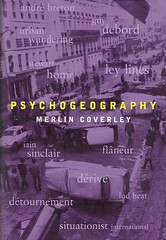Searle's Chinese Room argument is an attempt to show that a mind cannot be found inside a machine.
Searle asks his audience to imagine that many years from now, people have constructed a computer that behaves as if it understands Chinese. The computer takes Chinese characters as input and, following a program, produces other Chinese characters, which it presents as output. Suppose that this computer performs this task so convincingly that it easily passes the Turing test. In other words, it convinces a human Chinese speaker that the program is itself a human Chinese speaker. All the questions the human asks are responded to appropriately, such that the Chinese speaker is convinced that he or she is talking to another Chinese-speaking human. The conclusion that proponents of artificial intelligence would like to draw is that the computer understands Chinese, just as the person does.
Extract from Wikipedia
My response to this rests with the fact that this is a gedanken or "thought experiment". If you could do this "for real" then room "understands Chinese" just as much as any speaker, native or not. If this experiment were done today, then the lag would be a clue. The other issue is where is the "intellgence"? Well, it is the room, that is the person or computer programme inside actually answering the questions. The translation is a red herring!

